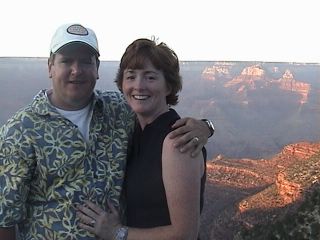Connecting and Caring
We are having the conversations again. We are having them all too frequently.
After the recent Florida school shooting, where 17 were killed, we are again engaged in emotional discussions, sharing strong opinions. We hear shouting and we read social media posts IN ALL CAPS! Invariably the arguments involve national politics and demand policy changes.
I am writing about something different, something important yet often absent from the conversations. I am talking about something simple, but not easy. It is a personal choice. It does not rely on anyone else, it’s something you alone choose.
I’m talking about connecting and caring. I’m talking about intentionally looking for broken people on the margins and in the shadows of our communities.
That’s it. Connecting. Caring. And by anyone’s measure, this is a highly effective deterrent to people shooting up a school. Last week Reader’s Digest shared this headline: “One Teacher’s Brilliant Strategy to Stop Future School Shootings – and It’s Not About Guns.”
Her brilliant strategy? She takes the time and effort to look out for the lonely in her school.
Connecting and caring get lost in the conversation because they are not political. They do not involve shouting. They are not policies that depend on the ambiguous “they,” as in “they” need to fix this. Caring and connecting depends on one person. The one in the mirror.
Many people are investing their life in connecting and caring for other people. You won’t hear these stories if all you do is shout and argue. Be active in politics and policy making, but not to the exclusion of caring and connecting with people. For the sake of our children, quit overestimating your skills of persuasion on Facebook and spend some time connecting with lonely and broken people!
Retired Abilene High School principal Royce Curtis is a volunteer mentor of teenagers. In a recent interview with Brittany Pelletz on KTAB, one of his protégés said Royce is “the little light” she follows.
Aaron Shaver and Janet Mendenhall, Community Coordinators for a local nonprofit (aptly named Connecting Caring Communities) spend time with families in specific neighborhoods. They have moved into CCC’s targeted areas of Abilene to be good neighbors and promote a safer, caring neighborhood.
Terry Cagle, Executive Director of CCC, says getting to know people and looking out for those on the margins, or in the shadows, is not that hard once you decide that’s what you’re going to do. Terry emphasizes he is not trying to “fix” anyone. Instead he’s investing in mutually supportive friendships. That’s what connecting and caring looks like.
Want to get past loud arguments? Share this good news: Abilene has hundreds of churches, nonprofits, schools, civic groups, and individuals who connect and care daily. It is not true that there is nothing good in this world and no hope for the future. If all you do is argue, you are complicit in promoting that false narrative.
I spoke with an Abilene friend who took her nephew, a teen who seemed destined for trouble, into her home. Because of his aunt’s brilliant strategy of love and connection, he is walking a much better path and will join the Navy.
So, what about the deeply troubled teenager in Florida? There are complex dynamics involved, including access to weapons and mental health. But what if he had a little light, an aunt, a teacher, or a Royce, Aaron, Janet, or Terry looking out for him? I don’t know his story fully. Perhaps he had many lights, but it certainly appears he was in the dark, both desperately lonely and tragically broken.
I searched for “churches’ near the high school in Parkland, Florida. Twenty popped up, all within walking distance. I wonder how many of those churches have youth groups. I wonder how many times the shooter was invited inside? It could be that he was often invited, and he declined. It could be he often attended and still was disconnected. Or it might be no one reached out to him exactly because he was different, on the margins and in the shadows.
All the while we loudly argue over politics and policies. All those things “they” should do.
Don’t mistake arguing and shouting for action. Don’t overlook desperately lonely and tragically broken people. Connecting and caring is simple, but not easy. It’s not politics, it’s not a policy depending on anyone else. Connecting and caring are actions for you and me.
After the recent Florida school shooting, where 17 were killed, we are again engaged in emotional discussions, sharing strong opinions. We hear shouting and we read social media posts IN ALL CAPS! Invariably the arguments involve national politics and demand policy changes.
I am writing about something different, something important yet often absent from the conversations. I am talking about something simple, but not easy. It is a personal choice. It does not rely on anyone else, it’s something you alone choose.
I’m talking about connecting and caring. I’m talking about intentionally looking for broken people on the margins and in the shadows of our communities.
That’s it. Connecting. Caring. And by anyone’s measure, this is a highly effective deterrent to people shooting up a school. Last week Reader’s Digest shared this headline: “One Teacher’s Brilliant Strategy to Stop Future School Shootings – and It’s Not About Guns.”
Her brilliant strategy? She takes the time and effort to look out for the lonely in her school.
Connecting and caring get lost in the conversation because they are not political. They do not involve shouting. They are not policies that depend on the ambiguous “they,” as in “they” need to fix this. Caring and connecting depends on one person. The one in the mirror.
Many people are investing their life in connecting and caring for other people. You won’t hear these stories if all you do is shout and argue. Be active in politics and policy making, but not to the exclusion of caring and connecting with people. For the sake of our children, quit overestimating your skills of persuasion on Facebook and spend some time connecting with lonely and broken people!
Retired Abilene High School principal Royce Curtis is a volunteer mentor of teenagers. In a recent interview with Brittany Pelletz on KTAB, one of his protégés said Royce is “the little light” she follows.
Aaron Shaver and Janet Mendenhall, Community Coordinators for a local nonprofit (aptly named Connecting Caring Communities) spend time with families in specific neighborhoods. They have moved into CCC’s targeted areas of Abilene to be good neighbors and promote a safer, caring neighborhood.
Terry Cagle, Executive Director of CCC, says getting to know people and looking out for those on the margins, or in the shadows, is not that hard once you decide that’s what you’re going to do. Terry emphasizes he is not trying to “fix” anyone. Instead he’s investing in mutually supportive friendships. That’s what connecting and caring looks like.
Want to get past loud arguments? Share this good news: Abilene has hundreds of churches, nonprofits, schools, civic groups, and individuals who connect and care daily. It is not true that there is nothing good in this world and no hope for the future. If all you do is argue, you are complicit in promoting that false narrative.
I spoke with an Abilene friend who took her nephew, a teen who seemed destined for trouble, into her home. Because of his aunt’s brilliant strategy of love and connection, he is walking a much better path and will join the Navy.
So, what about the deeply troubled teenager in Florida? There are complex dynamics involved, including access to weapons and mental health. But what if he had a little light, an aunt, a teacher, or a Royce, Aaron, Janet, or Terry looking out for him? I don’t know his story fully. Perhaps he had many lights, but it certainly appears he was in the dark, both desperately lonely and tragically broken.
I searched for “churches’ near the high school in Parkland, Florida. Twenty popped up, all within walking distance. I wonder how many of those churches have youth groups. I wonder how many times the shooter was invited inside? It could be that he was often invited, and he declined. It could be he often attended and still was disconnected. Or it might be no one reached out to him exactly because he was different, on the margins and in the shadows.
All the while we loudly argue over politics and policies. All those things “they” should do.
Don’t mistake arguing and shouting for action. Don’t overlook desperately lonely and tragically broken people. Connecting and caring is simple, but not easy. It’s not politics, it’s not a policy depending on anyone else. Connecting and caring are actions for you and me.





